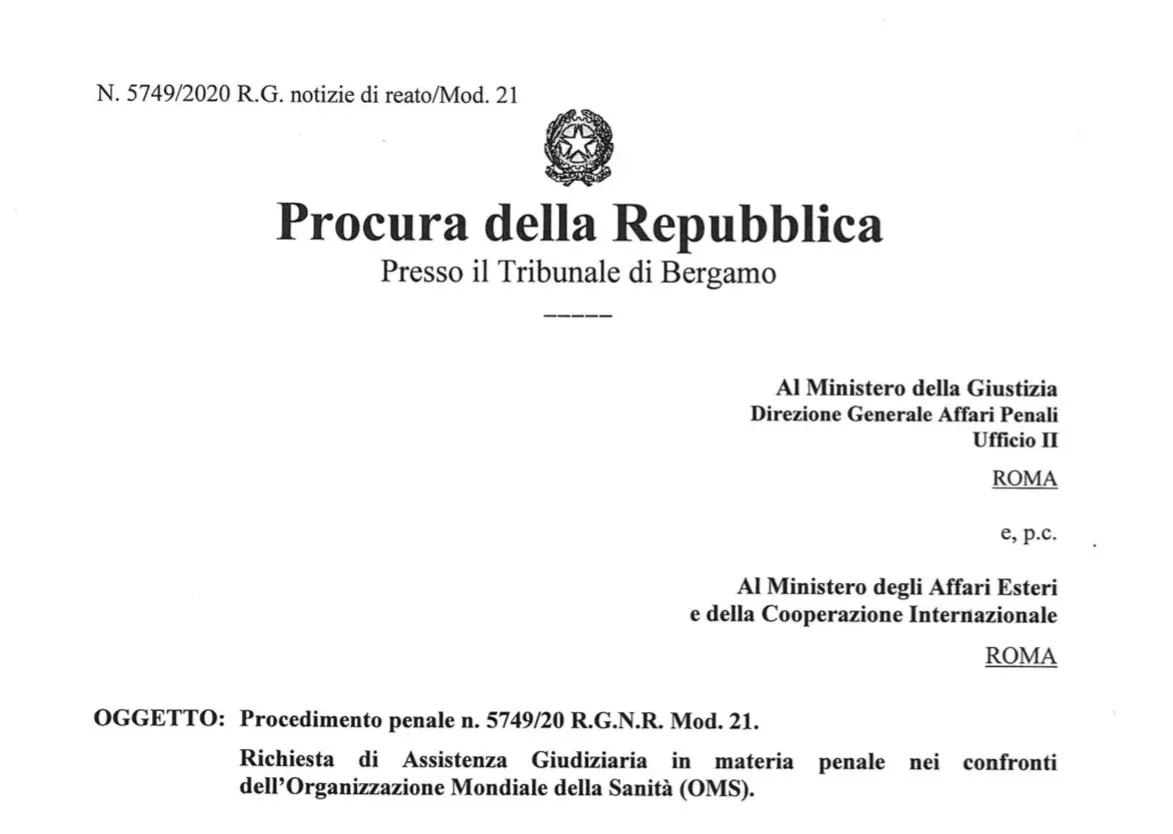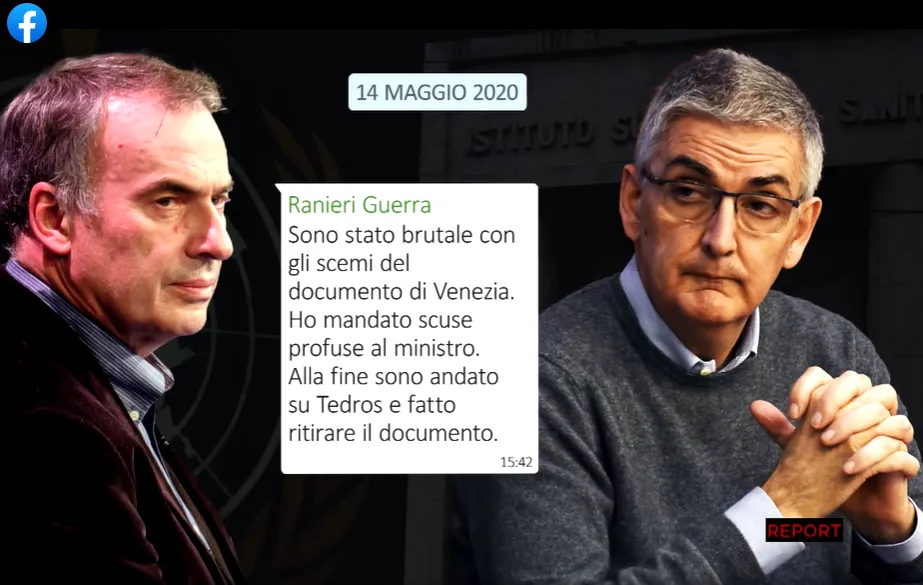A WHO senior official is under investigation in Italy
An Italian investigation of a senior WHO official reveals the extent of what appears to be a concerted cover-up by the Italian health authorities and WHO’s higher echelons to suppress a damning WHO report on Italy’s unpreparedness in reacting to the pandemic.
What was until now an essentially Italian affair is turning into an international story whose shock waves are being felt in International Geneva. A senior official at the WHO, until recently one of the organizations 11 deputy directors, is under investigation by the Italian authorities. The 67-year-old Ranieri Guerra is accused by the authorities of having provided misleading information about his role and the extent of his efforts to squash a WHO report denouncing Italy’s unpreparedness in responding to the pandemic.

On March 8, 2021, two prosecutors from Bergamo sent a request for judiciary assistance to WHO in Geneva via the Italian foreign ministry. Neither the existence of the request nor the investigation of one of its senior officials were made public by the WHO. And while the organization says it will cooperate with the Italian authorities, the Italian magistrates explicitly accuse WHO of having made it difficult to conduct their enquiry. “The WHO has requested of the Ministry of Health that it be particularly vigilant about our investigations,” remarked Bergamo prosecutor Maria Christina Rota on RAI, the Italian public broadcaster. Their interest in finding out why the report was killed is part of a larger investigation into the circumstances that made Bergamo and its region the epicenter of the pandemic in February and March of last year.
Answers to these questions were contained in a WHO report called “An Unprecedented Challenge.” Published on May 13, 2020 on WHO’s website, the 102-page document written by 11 European researchers under the lead coordination of Francesco Zambon was unexpectedly taken down 24 hours later. It revealed, among other facts, that the country’s pandemic preparedness had not been updated since 2006. Year after year, the Italian health authorities—including Guerra when he worked at the health ministry—had simply copied and pasted the old version in their reporting to WHO. Italy was not the only country to have obsolete preparedness plans, but WHO’s suppression of the report is revelatory of WHO’s modus operandi and susceptibility to influence. The rogatory letter and other pieces of evidence reveal a concerted effort between the Italian health authorities and the WHO to suppress the report. A decision made, it should be noted, a few days after Italy had contributed €10 million to WHO.
Leaked WhatsApp exchanges between Ranieri Guerra and some of his Italian interlocutors tell the story of these frantic efforts: “I was brutal with the idiots in the Venice document,” Guerra wrote to Silvio Brusaferro, the president of the Italian Public Health Institute, adding “I have profusely apologized to the Health Minister.” To the Minister’s chief of staff, who hopes the report “will disappear into thin air,” Ranieri Guerra suggested that, should it not be the case, they rewrite it. That the report had been approved by the WHO European director, Hans Henri Kluge, and the agency’s main scientists seem to be of lesser importance to Guerra than politics and Italy’s position towards the WHO: The “idiots in Venice”—a reference to the WHO’s Venice office where Zambon works—he lashes out “are putting at risk a very serious discussion in anticipation of the next G20 summit and a special relationship between Tedros and Italy. Were I the minister, I’d send them all to hell!"

One of the more significant sentences in Ranieri Guerra’s WhatsApp exchanges, written to Silvio Brusaffero on May 14, 2020 at 15:42, and the one that no doubt will be subject of further examination is this one: “In the end, I went to Tedros and I made him pull the document.”
Through its communication office, WHO maintains that WHO Director-General Tedros “was not involved himself in the development, publishing or withdrawal of the report” and that “all decisions were made in Copenhagen,” the seat of WHO’s European Regional Office.
The reference to Dr Tedros was taken out of context, Ranieri Guerra told the Corriere Della Sera in an interview published Monday, April 12, like all the quotes used by the Bergamo magistrate. “I did not lie,” and did not pull down the report. That decision he says “was taken by Hans Henri Kluge who obviously deemed that the report should not be republished” after its inaccuracies had been corrected.
As for Francesco Zambon, who resigned from the WHO and is now unemployed, he told The Geneva Observer that his trust in the leadership of the organization he worked for 13 years is gone. "The law of silence prevails. It is part of this absurd lack of communication and transparency. The very problem I tried to alert them to, telling Tedros himself in an email that at some point, silence was bound to bring discredit to the organisation. One year later, I am proven right."
He never got an answer.
-PHM
